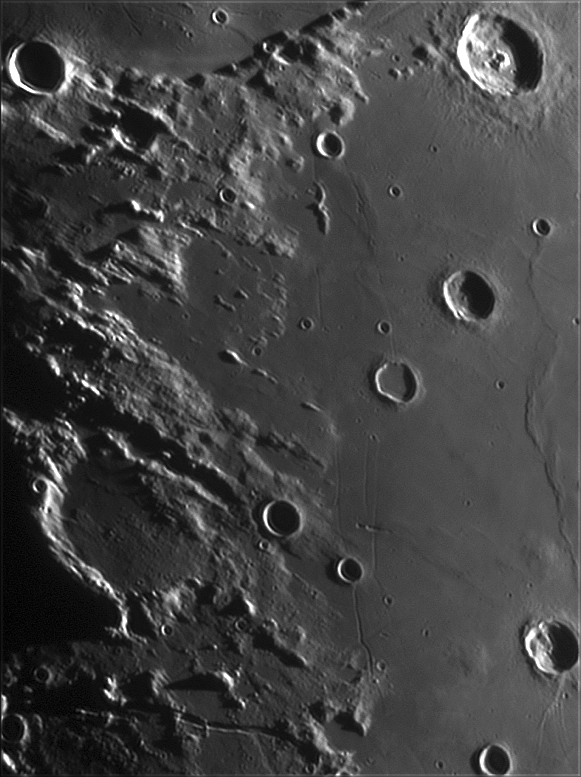Where Basins Collide

|
image by Jocelyn Sérot, France
The western edge of the Tranquillitatis Basin is an interesting transition zone where basins intersect. Do you see the evidence here for three different basins? Easiest is the lavas of Mare Tranquillitatis on the right and its series of - nearly linear here - but really circumferential rilles that mark the flexure zone where the lavas bent as the basin subsided under their weight. Just near the right edge are mare ridges, showing where the subsiding basin caused low angle faults - the ridges - where one slab of mare moved under its neighbor. Only a small part of the second basin is visible. It is Serenitatis, part of whose rim is marked with the curved mountain ridge at top center. Some of its circumferential rilles are just glimpsed above Plinius and at upper left. The third basin isn't present but it created the ridged and gouged terrain on the left. Imbrium's eject didn't fall from the sky here, it roared overland, scouring and rounding crater rims and pre-existing ejecta from the two earlier basins. But Imbrium itself was older than the maria of Tranquillitatis and Serenitatis, for Imbrium's ejecta disappears under the lavas. Before the lavas were deposited, Imbrium ejecta must have covered the floors of both older basins. In fact, the low mare ridge between the two Arago domes is on the trend of the linearized Imbrium ejecta and thus probably is also ejecta. A similar ridge just north of Ross may be another piece of buried ejecta. It is fun to figure out why random landforms exist.
Chuck Wood
Technical Details
jan 21, 2010. Mewlon 210 at F/D=21 (Barlow 2x), DMK31AF camera, W23 red filter, processing Avistack+Registax.
Related Links
Rükl plate 35
|
Yesterday's LPOD: Troubled Floor
Tomorrow's LPOD: Driving Across Ptolemy
Register, Log in,
and join in the comments.

